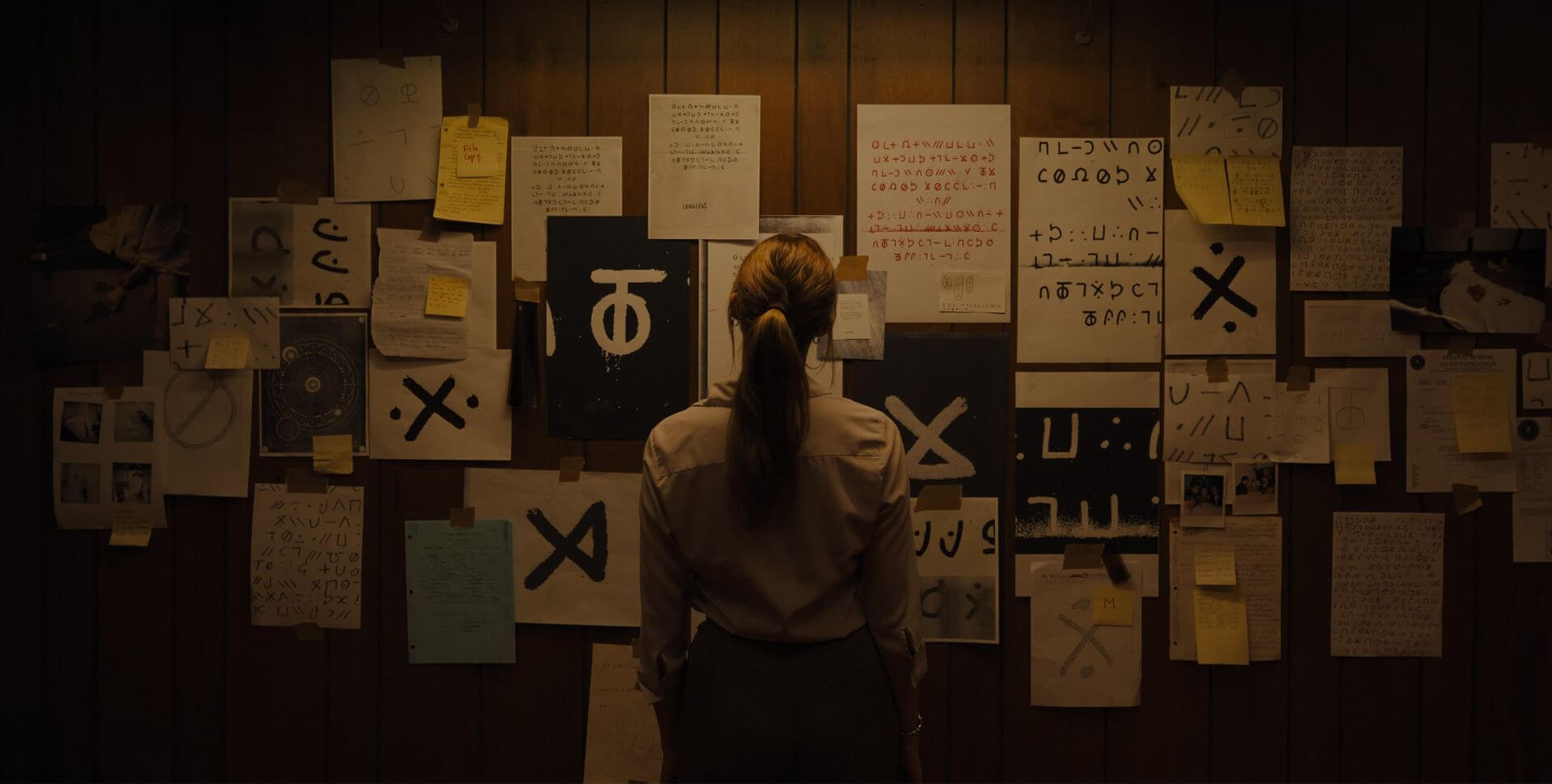Set in eerie snow-covered landscapes in the 1990s, Longlegs revolves around semi-psychic FBI agent Lee Harker (Maika Monroe) as she tirelessly pursues the occultist Charles Manson-like figure known as Longlegs (Nicolas Cage). The titular character might be a serial killer but is never directly involved in the mass murder of families that follow in his wake. Who is this eccentric, elusive figure who pens letters in ciphers and codes?
We've all seen this story before but haven't experienced (or specifically heard) it like this. For avid watchers of detective thrillers, serial killer lore, and Satanic tales, Longlegs treads on familiar ground. Oregon's dimmed-down yellow lighting and eerie mistiness are reminiscent of David Fincher's Se7en and Zodiac or Denis Villeneuve's Prisoners. Even the FBI agent and serial killer themselves feel like they belong to a new-age Silence of the Lambs. And yet director Osgood Perkins (son of Psycho actor Anthony Perkins) grips us right from the start, stylistically flitting the screen from vintage film-shot 4:3 ratios to a widescreen lens. The visuals can be jarring, from close-ups of Cage's frightening white-faced, over-the-top act as Longlegs to archival footage of gruesome crime scenes. But Perkins, much like his father's collaborator Alfred Hitchcock, values the rewards of terror more than in-your-face horror. Soundtrack composer Zilgi and sound designer Eugenio Battaglia seamlessly blend scratchy bouts of white noise with deafening whispers that play out like a Satanic incantation. Longlegs is a film that perpetually demands your attention, with a soundscape that hypnotically creeps up on you and camera movements as unpredictable as its killer's motives.
Nicolas Cage and Maika Monroe's opposite personalities complement each other. With his genre appeal and usual bizarreness, Nicolas Cage is a major magnet to attract audiences to Longlegs. But Maika Monroe also holds her own as the lead, giving us a riveting performance far beyond her past horror outings like It Follows or The Guest. If Cage is effortlessly delivering his usual dose of crackhead energy, Monroe's agent Harker is more repressed and professional. Forget their motives; ultimately, the contrast in their personalities adds more variety to Longlegs. This film is more than just Jodie Foster talking to Anthony Hopkins' Hannibal Lecter to solve a case; it is a cat-and-mouse game between two broken people who come close to their common bond of trauma, violence, and, well, Satan.
Scariest movie ever? Probably not. But heavily unsettling? Without a doubt. A good deal of Neon's marketing budget went into promoting Longlegs as one of the scariest movies of the decade or perhaps of all time. While this move can be a box-office draw, it can also be an excuse for some audiences to hate on Longlegs just because a yelling Nic Cage didn't make them wet their trousers. Best to go in blank without the intention of ticking off Longlegs as the scariest story put to screen. Instead, immerse yourself in an anxiety-inducing world of discomfort, chaos, and everything red, and you will be suitably rewarded. Perkins's screenplay twists and turns like the symbol-heavy letters adorning the story. But he also gives us the cipher, explaining everything in due time. And even if the third-act payoff might seem predictable to some, the prolonged sense of uneasiness is enough to make Longlegs worth your time.
Longlegs is a disturbing portrait of orchestrated violence and Satanic manipulation elevated by Osgood Perkin's toe-curling direction and Nicolas Cage's uncaged presence.

